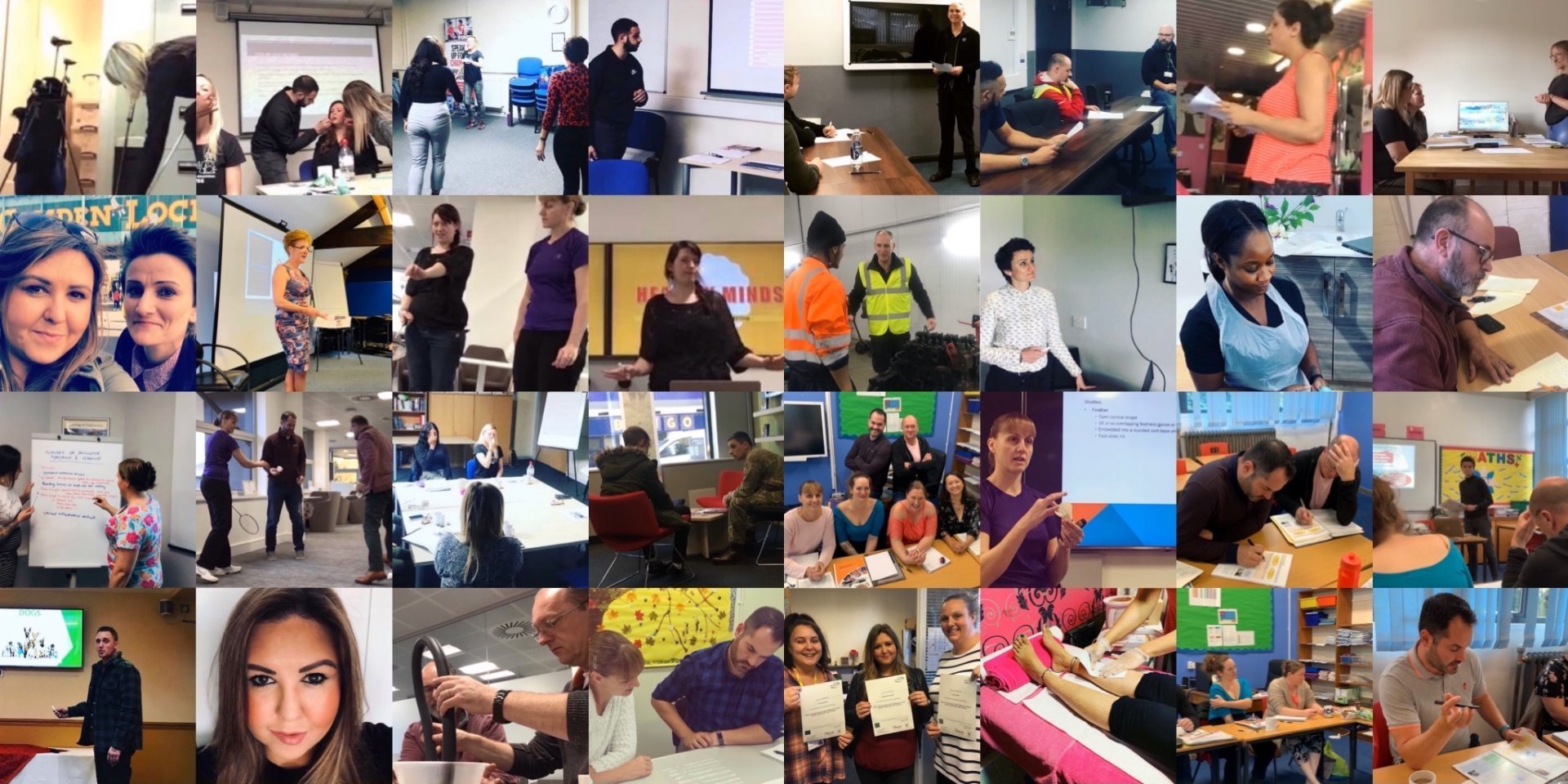Toxic positivity
Posted on 25th February 2020 at 18:23
By Sarah Harris
As someone who has - since childhood - experienced a lot of anxiety and low mood, I have always been aware of something very annoying to me that occurs when (some) people want to help. I have never been able to fully describe it or even give good examples of when it has happened. What I did know was that it always made me feel a lot worse and, in turn, more guilty about feeling low or anxious and much less likely to bother others with how I felt.
Amanda and I have recently been looking at some new topics to deliver. We focus on teacher and assessor training mainly, along with Leadership and Management and some Conflict Management and LGBTQI+ workshops. We know a lot of people deliver stress management workshops but we wanted to put together something a bit different. Something with practical solutions to try to manage stress for people who maybe don’t go for soothing words or having a bath with candles.
I don’t claim to be any sort of expert on this by the way. If you know more about it, I would love to learn from you.
Anyway, when doing my research, I stumbled across Toxic Positivity and now I can’t stop talking about it. It has described exactly what I’ve been experiencing throughout life and it has genuinely reduced my anxiety levels simply by understanding it and recognising it.
When we feel stressed or down, people around us often try to help by telling us to have a positive attitude or think positively or smile, no matter what. We see this a lot on social media.
Being upbeat at times may be important, but it is both okay and also important to feel our more difficult feelings as well.
Toxic positivity refers to the concept that keeping positive, and keeping positive only, is the right way to live our lives. It
means only focusing on positive things and rejecting anything that may trigger negative emotions.
When we deny or avoid unpleasant emotions, we make them bigger. Avoiding negative emotions reinforces this idea: because we avoid feeling them, we are telling ourselves that we don’t need to feel them. While we are trapped in this cycle, these emotions become bigger and more significant as they remain unprocessed.
We as humans cannot program ourselves to only feel happy. We lose valuable information when we avoid difficult emotions. For example, feeling scared tells us to be aware of our surroundings.
Also, when we don't pay attention to negative feelings, we can come across to others like we don't have them, which makes us less approachable and relatable. It’s hard to have a meaningful relationship with someone who ignores sadness and anxiety.
The picture below is one that popped up on my Instagram feed. You might not like all of the comments that give validation and hope (I don’t like them all) but the message is clear and I feel it demonstrates toxic positivity really effectively.

We would love to know what you think. If what you've read today resonates with you, please get in touch for more information about our Stress Management workshop where all of this and more is fully explored.
Tagged as: AET, PTLLS, Training, Teaching, Award in Education, Stress; toxic positivity, workshops, training
Share this post:





